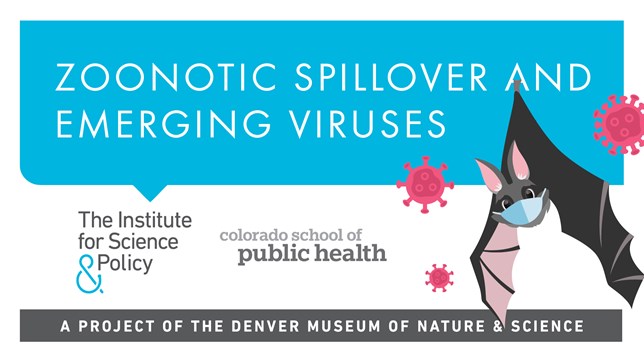Zoonotic Spillover and Emerging Viruses
Time: 8:30 AM to 9:30 AM
Zoonotic Spillover and Emerging Viruses
A Collaboration of the Colorado School of Public Health and the Denver Museum of Nature & Science
Monday, August 3 at 8:30 a.m.
Watch the recording and read the recap
COVID-19 isn’t the first virus to make the leap from animals to humans, and if history is any guide, it won’t be the last. Novel zoonotic diseases can persist benignly inside an animal host for years, waiting patiently for an opportunity to jump to a new species and wreak havoc. We’ve seen other high-profile examples of these “spillover” events in recent decades, notably AIDS, Ebola, and SARS. Scientists have been working to better understand these transmission pathways in order to warn of new emerging threats. But there is still much to learn. Which conditions allow an animal-borne virus like COVID-19 to take hold in human populations? And what have researchers learned that might help us prevent future global outbreaks?
Join us on Monday, Aug. 3 at 8:30 a.m. as we discuss zoonotic viruses with Brian Foy, PhD, and Tony Schountz, PhD, both Professors in the Department of Microbiology, Immunology, and Pathology at Colorado State University. Dr. Foy studies vector-borne pathogens while Dr. Schountz studies immune responses of reservoir hosts, particularly rodents and bats. They'll discuss the science behind animal-to-human transmission and how COVID-19 has played out thus far, then answer your questions live during a moderated Q&A session.
This free public webinar is a collaboration of the Colorado School of Public Health, the Denver Museum of Nature & Science, and the Institute for Science & Policy. The session will also be streamed on Facebook Live.

